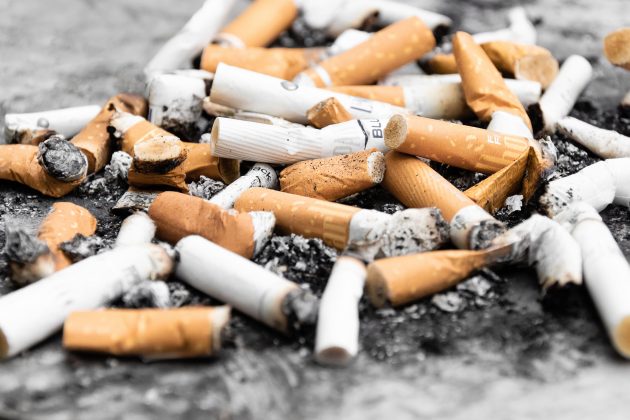Mexico: Smoking Ban Amped Up; Regulation Can Help Mitigate Pollution
20 July, 2023
In early 2023, Mexico tightened its smoking ban to include all public places, making this one of the strictest anti-tobacco laws in the world. This extension builds upon Mexico’s existing 2008 law which prohibited smoking in bars, restaurants, and workplaces. Now, parks, beaches, hotels, offices, and restaurants are also included in the country’s smoke-free spaces. The ban also covers smoking and tobacco advertising, promotion, and sponsorship; cigarettes cannot even be visible in stores. This robust regulation aims to lower the impact of cigarettes on health and mortality, as it’s one of the leading causes of preventable death in the world. However, banning cigarettes and public areas may also benefit the environment in various ways.
Tobacco causes much harm to the ecosystem through its growth, consumption, and disposal. Pollution—which is something Mexico already struggles with—is further exacerbated by the constant use and improper disposal of cigarettes. While this new regulation may be met with dissent from some Mexican citizens, it may prove to be beneficial to them and the environment in the long run.
Tobacco’s environmental impact
Every step of tobacco production significantly harms the environment, workers, and consumers. Tobacco is mainly grown in low and middle-income countries like Brazil, which has already been struggling with the effects of climate change and biodiversity loss. Poor labor practices and the use of pesticides further contribute to health issues in farmers and environmental damage. When tobacco is processed into cigarettes, the harmful cycle continues with its consumption. Smoking can further worsen air quality, affecting the health of those who have never touched a cigarette. Mexico already struggles with air pollution, as it flows along and lingers in Mexican terrain and builds up, especially in urban areas. The impacts affect more than smokers and tobacco farmers; they extend to non-smokers and vulnerable populations through passive smoking or changes in our surroundings.
Another issue is that the environmental implications of smoking aren’t typically at the forefront of people’s minds. Most people know that cigarette harms health, but not many know how tobacco plays a role in climate change, so many dispose of cigarette butts without much thought to where they end up. Improper disposal of cigarette butts also greatly contributes to pollution, as toxic chemicals can leak into bodies of water and affect wildlife.
Changing sentiments
Though smoking is still frequently done globally, sentiments around cigarettes and tobacco have shifted as more people view it negatively, thanks to decades-long campaigns. With more awareness surrounding the effects of cigarettes, consumers have been moving towards smokeless and tobacco-free alternatives, and markets work to fill that demand. Nicotine replacement therapy (NRT) products are gaining more traction among consumers.
Nicotine pouches are a newer product, emerging recently but quickly gaining popularity. On! pouches sold on Prilla represent the wide range of flavors and nicotine strengths a person can choose from, allowing them to buy pouches suited to their taste. This brand is also known for its ultra-compact mini-dry format, allowing pouches to remain invisible under the upper lip and is not prone to causing dripping. Besides fewer health impacts, the pouches are also easy to dispose of in the proper trash receptacles and won’t cause as much damage as cigarettes. Nicotine lozenges are another new product that helps diminish cravings and withdrawal. NOSMOK nicotine lozenges were recently launched to help people with their smoking cessation journey. It comes in a mint flavor and has both sugar-based and sugar-free variants. These smokeless, tobacco-free alternatives provide a promising replacement for harmful cigarettes, minimizing environmental and health effects.
There is still much progress to be made regarding the tobacco industry and cigarettes’ contribution to pollution and climate change, but declines in smoking and emerging alternatives do present a positive outlook for the future. With increased awareness, further shifts can be made in consumer behavior and markets to veer away from harmful products and practices in favor of seeking innovative changes.
Follow Sounds and Colours: Facebook / Twitter / Instagram / Mixcloud / Soundcloud / Bandcamp
Subscribe to the Sounds and Colours Newsletter for regular updates, news and competitions bringing the best of Latin American culture direct to your Inbox.

